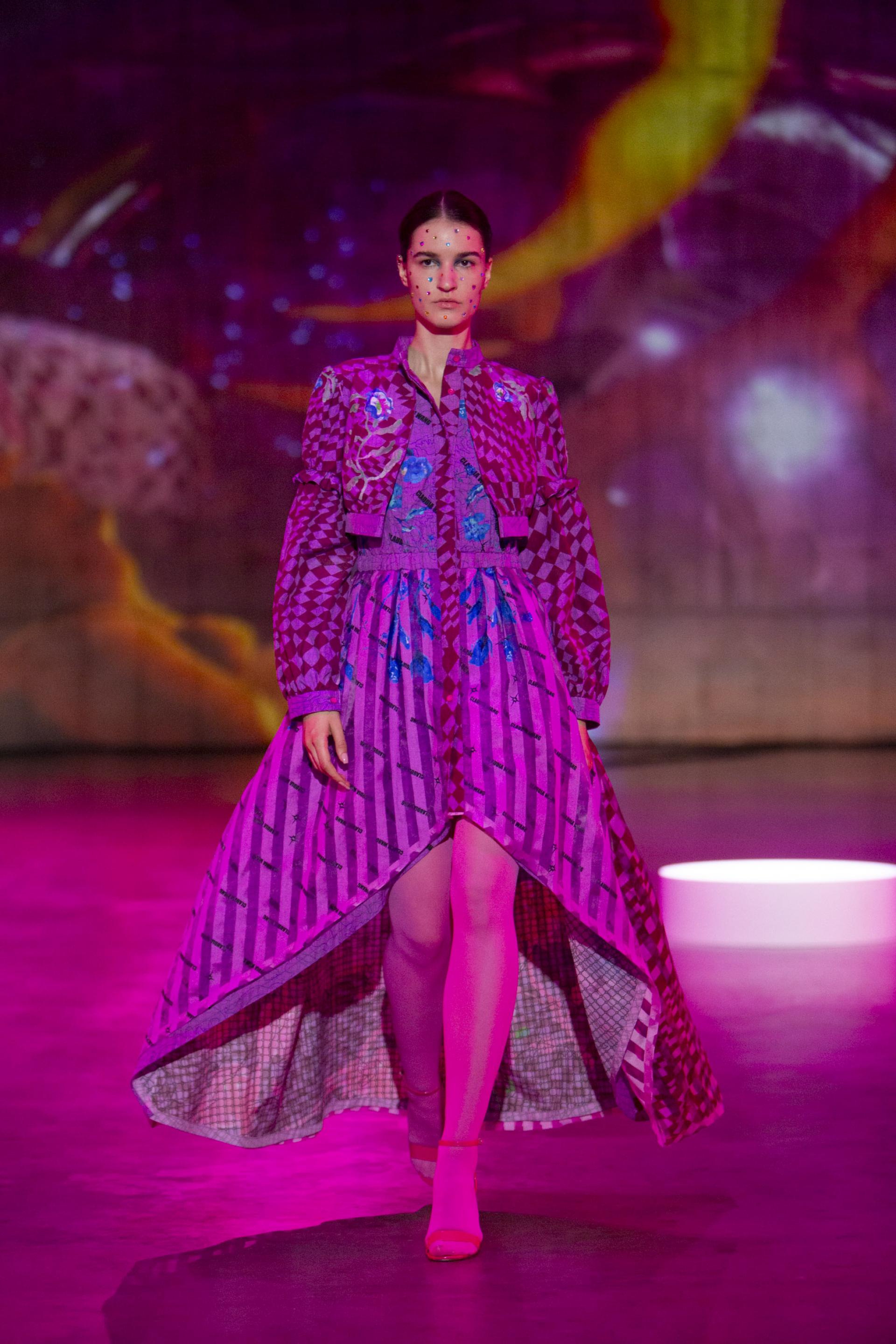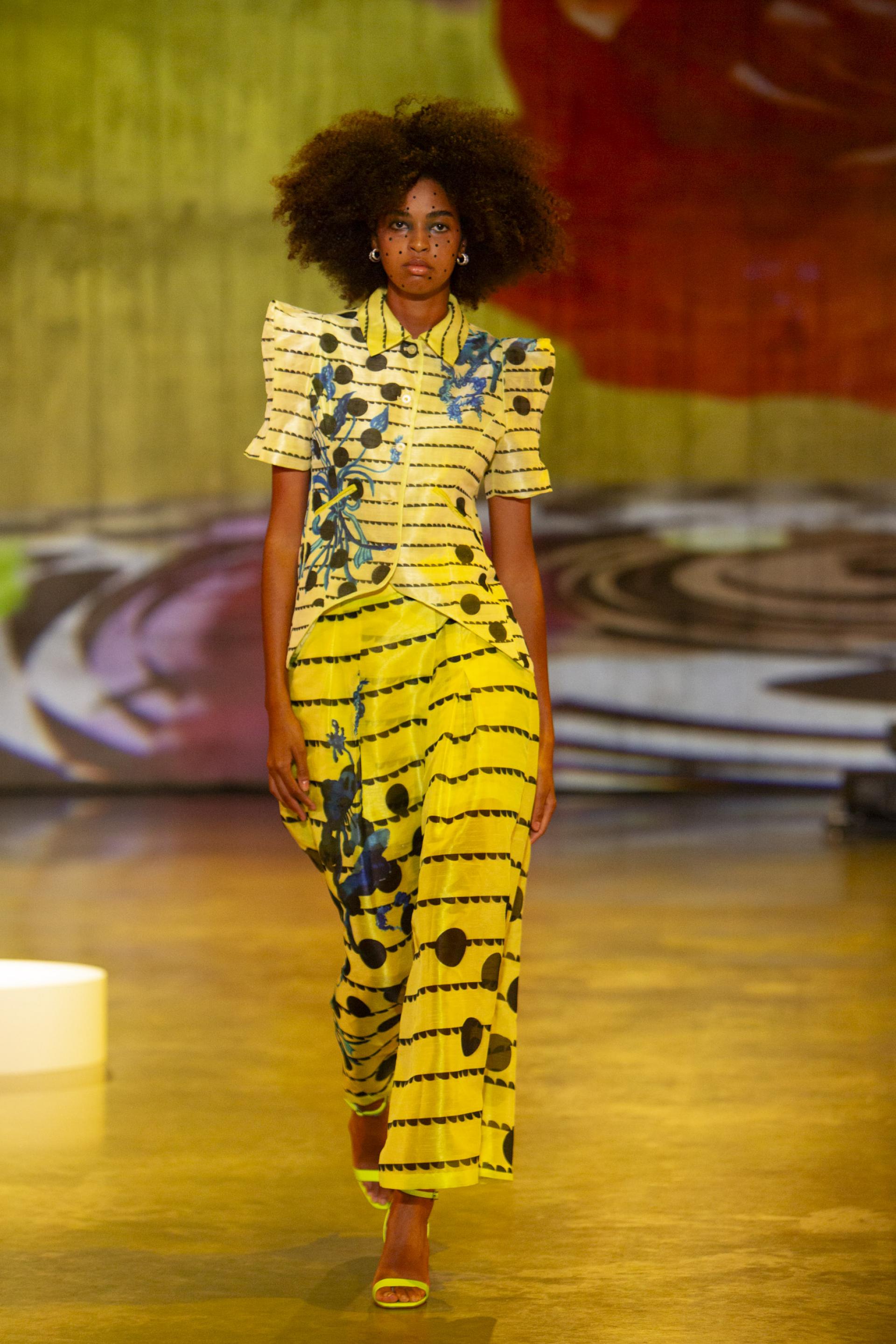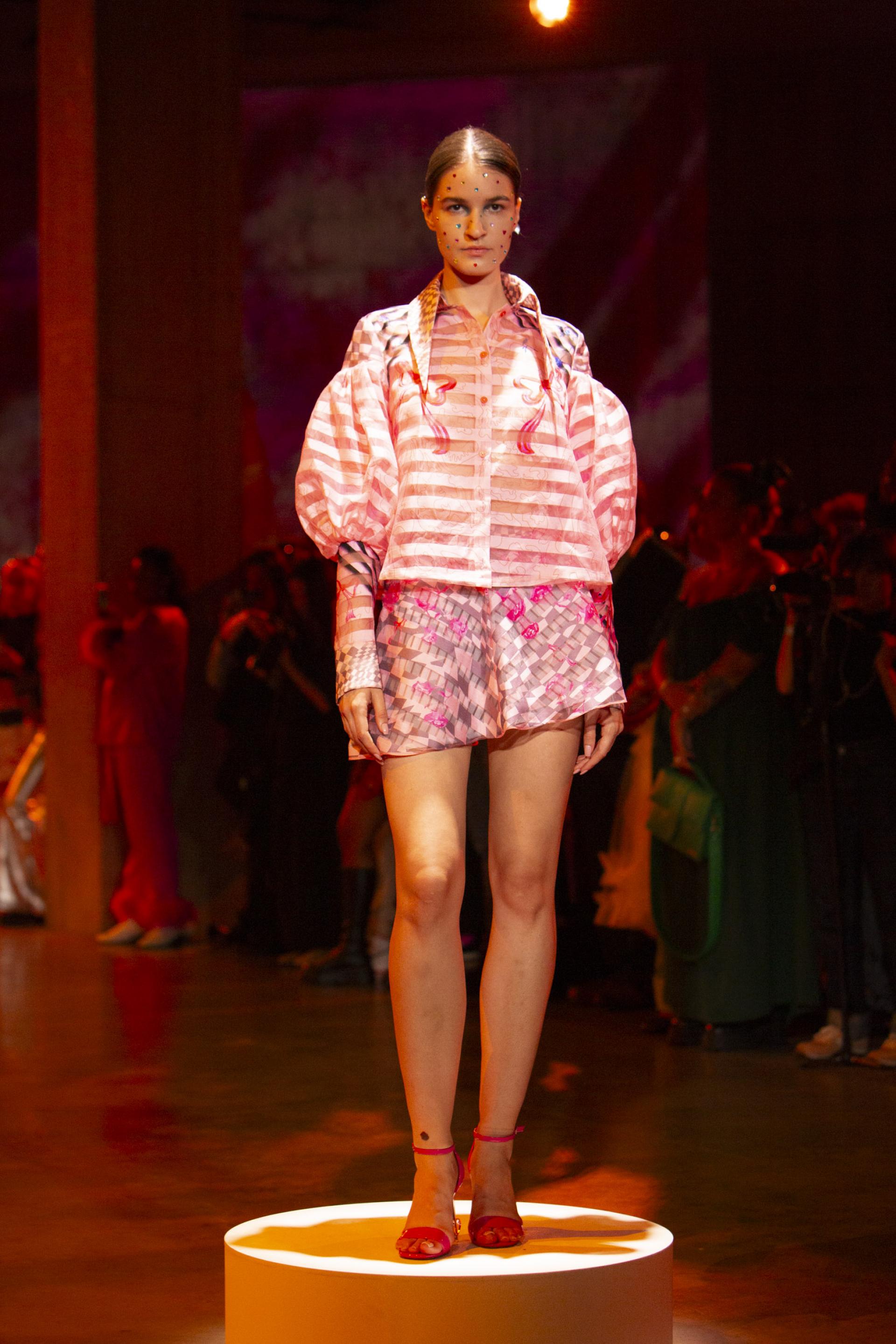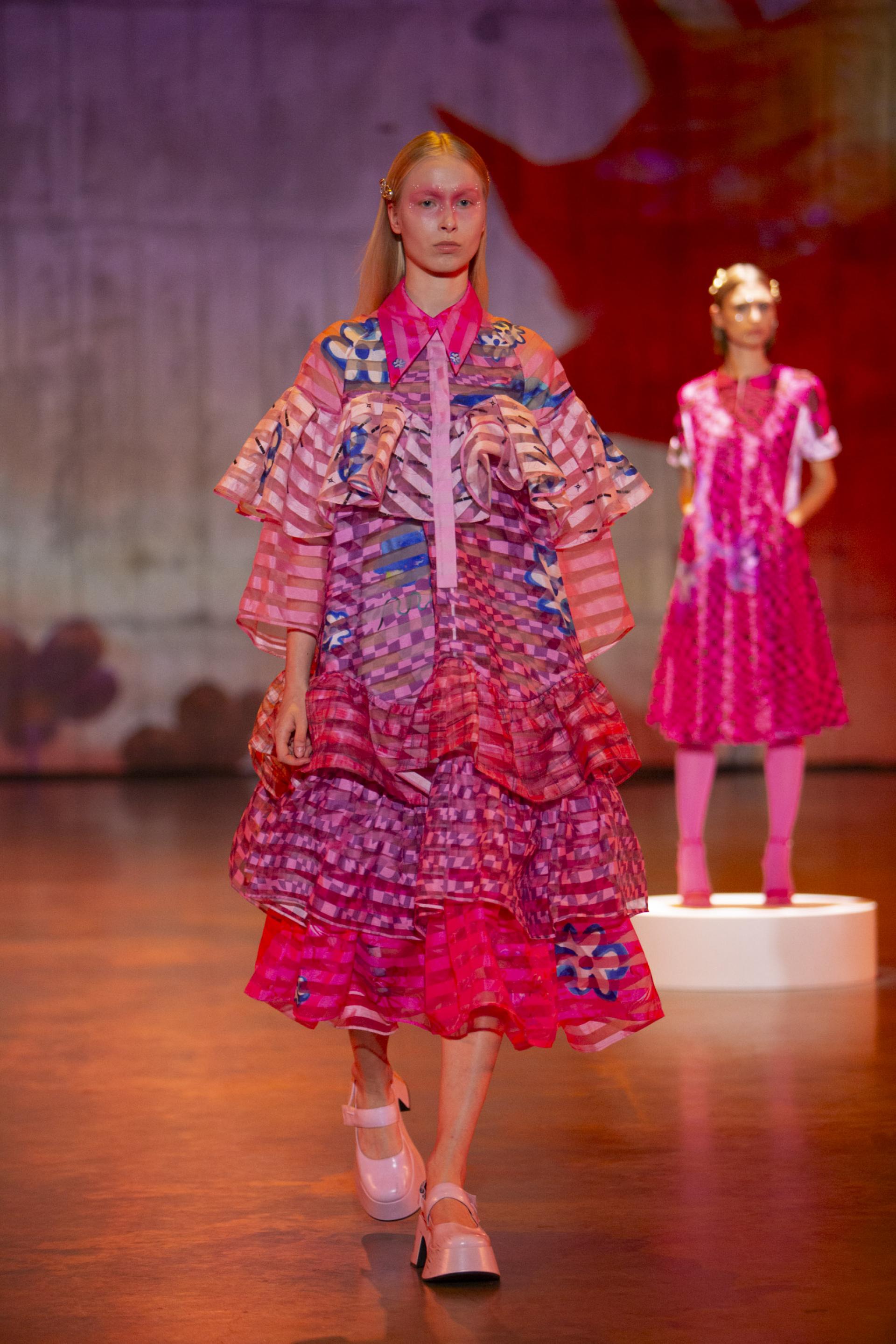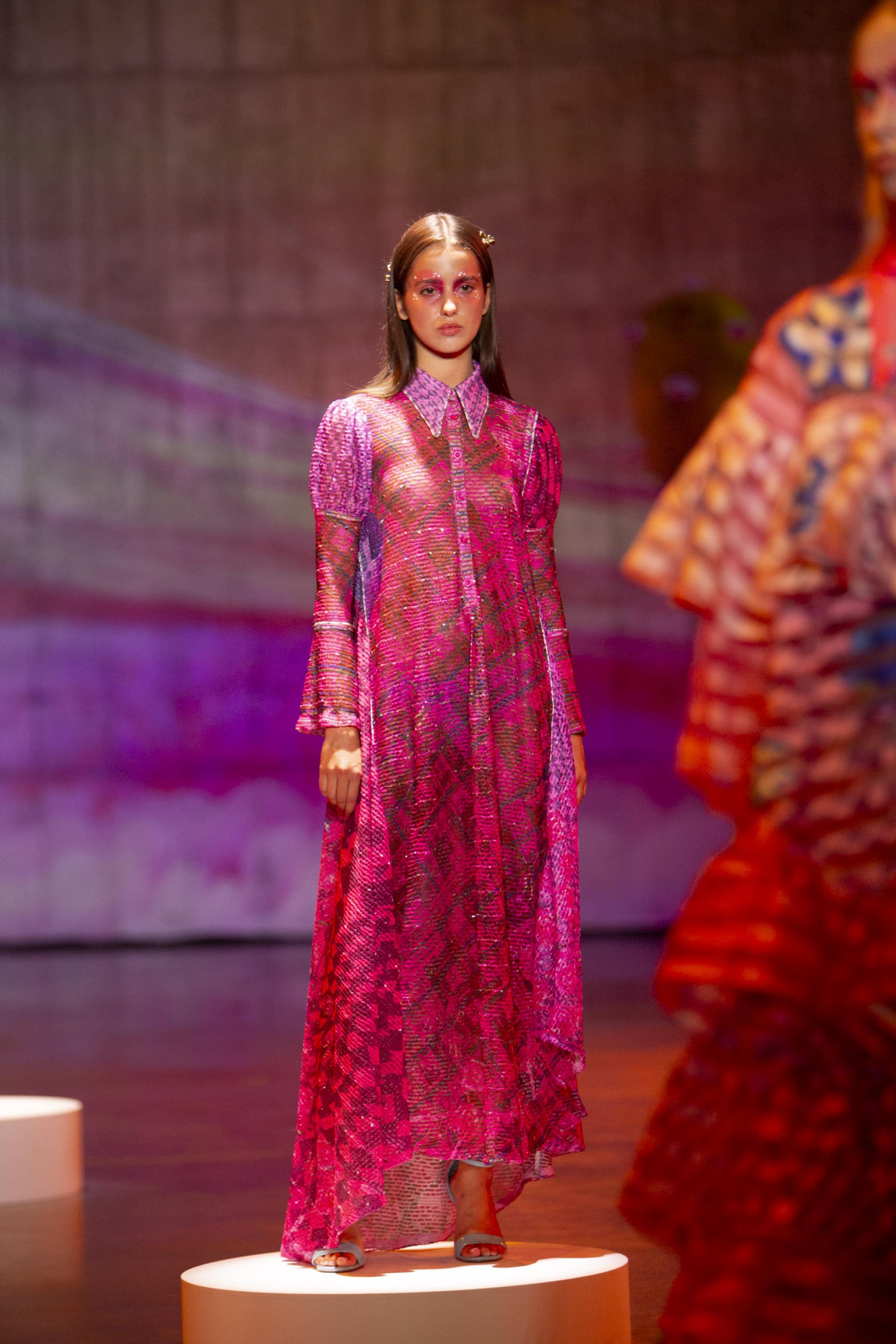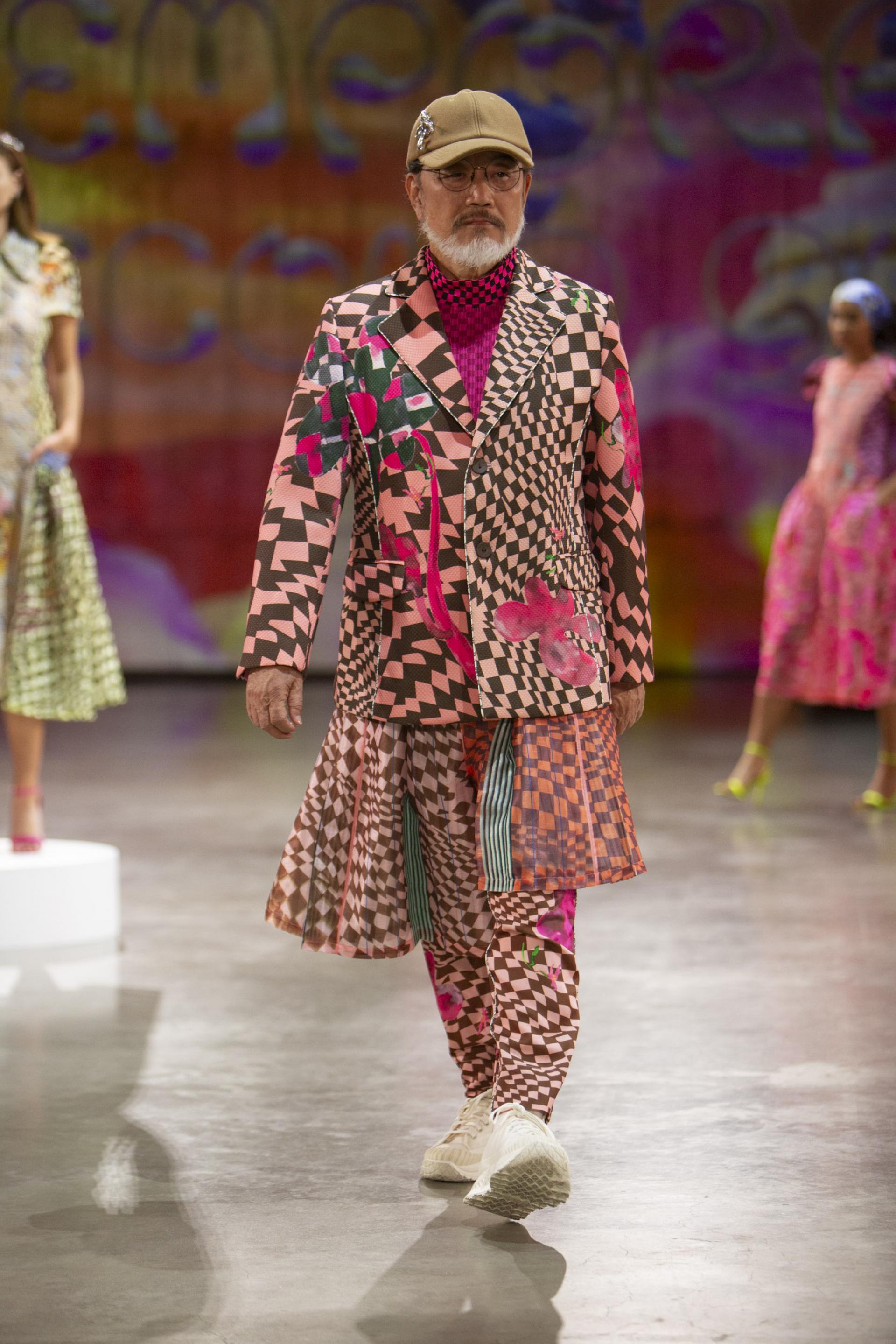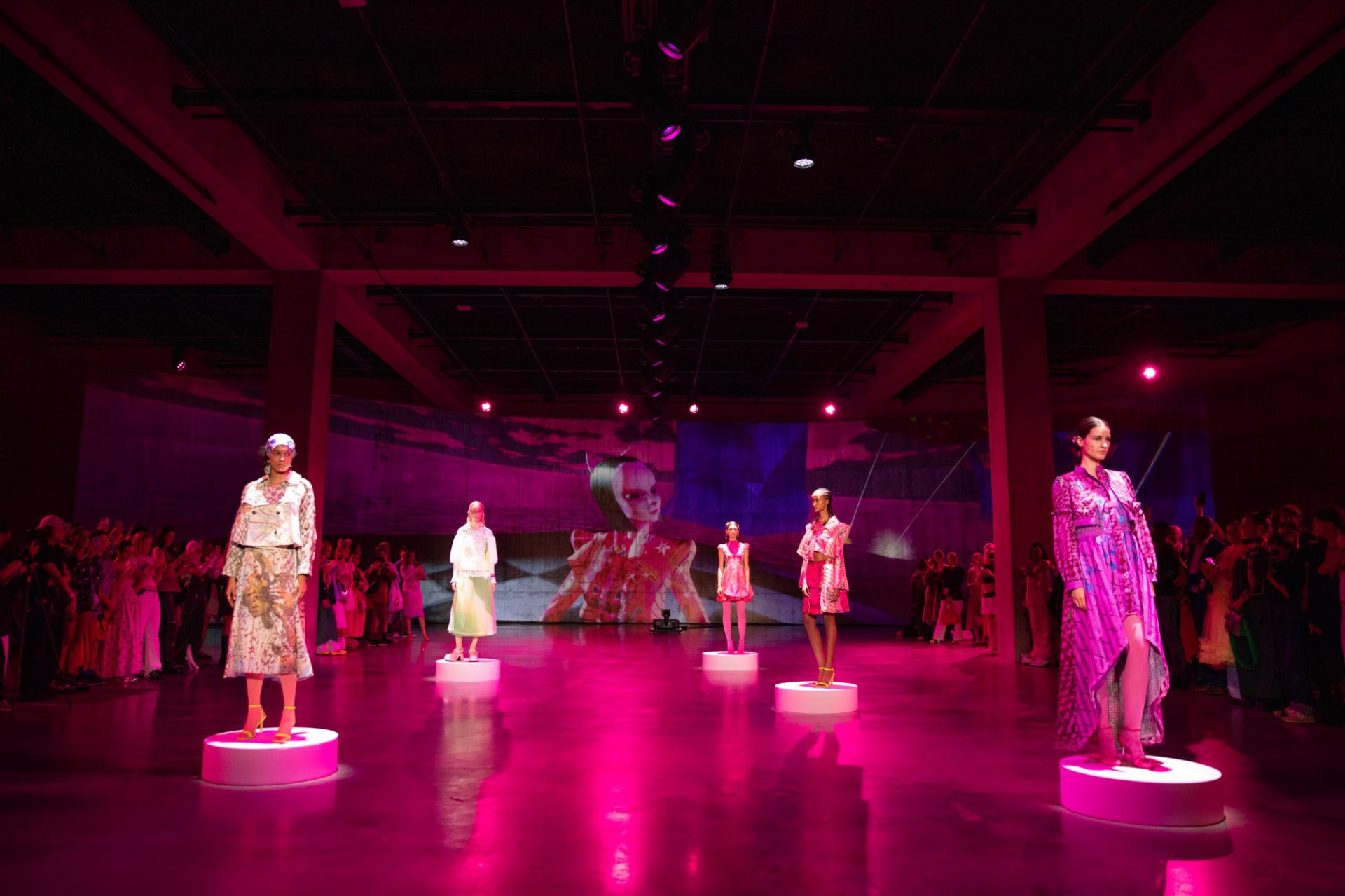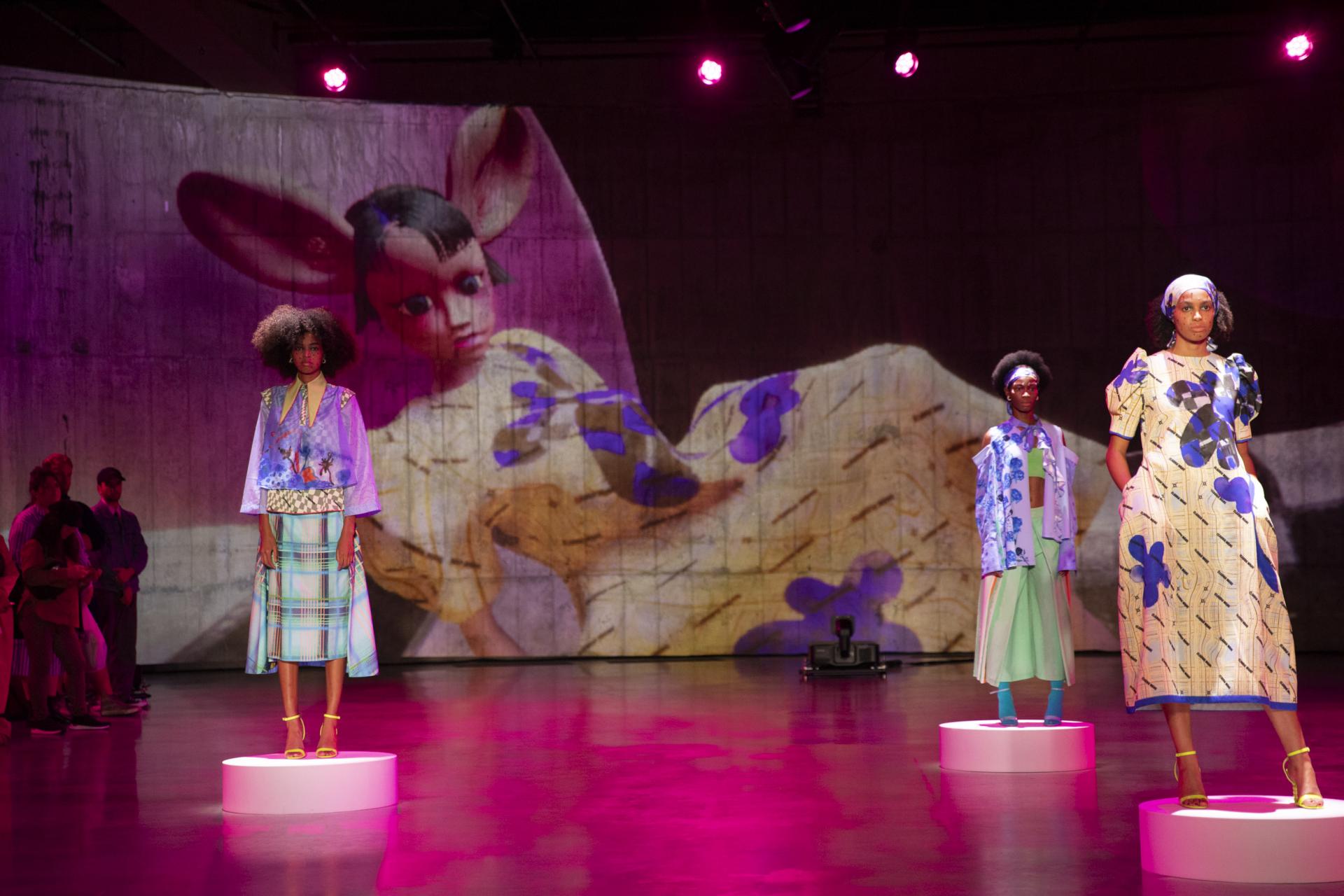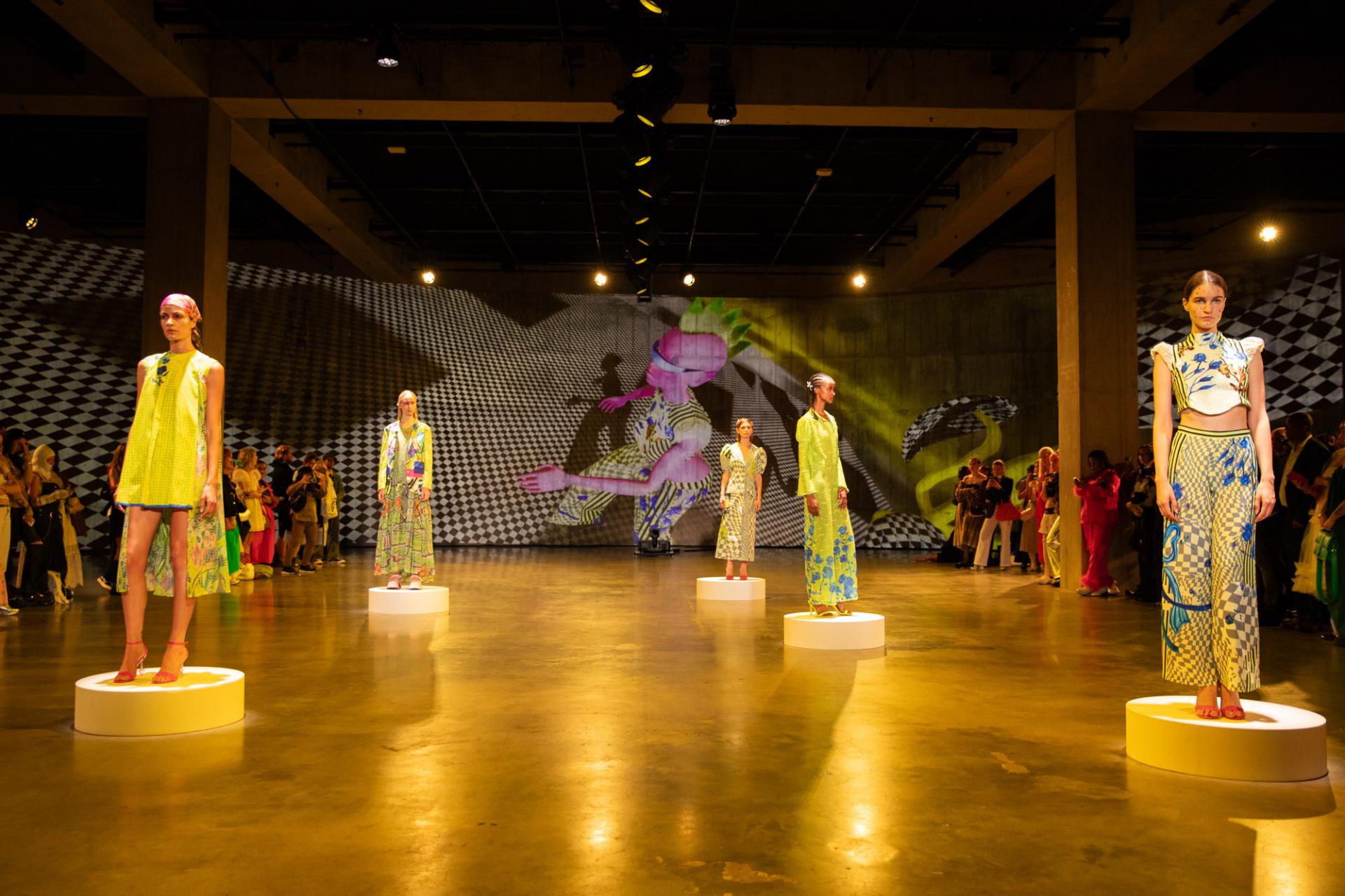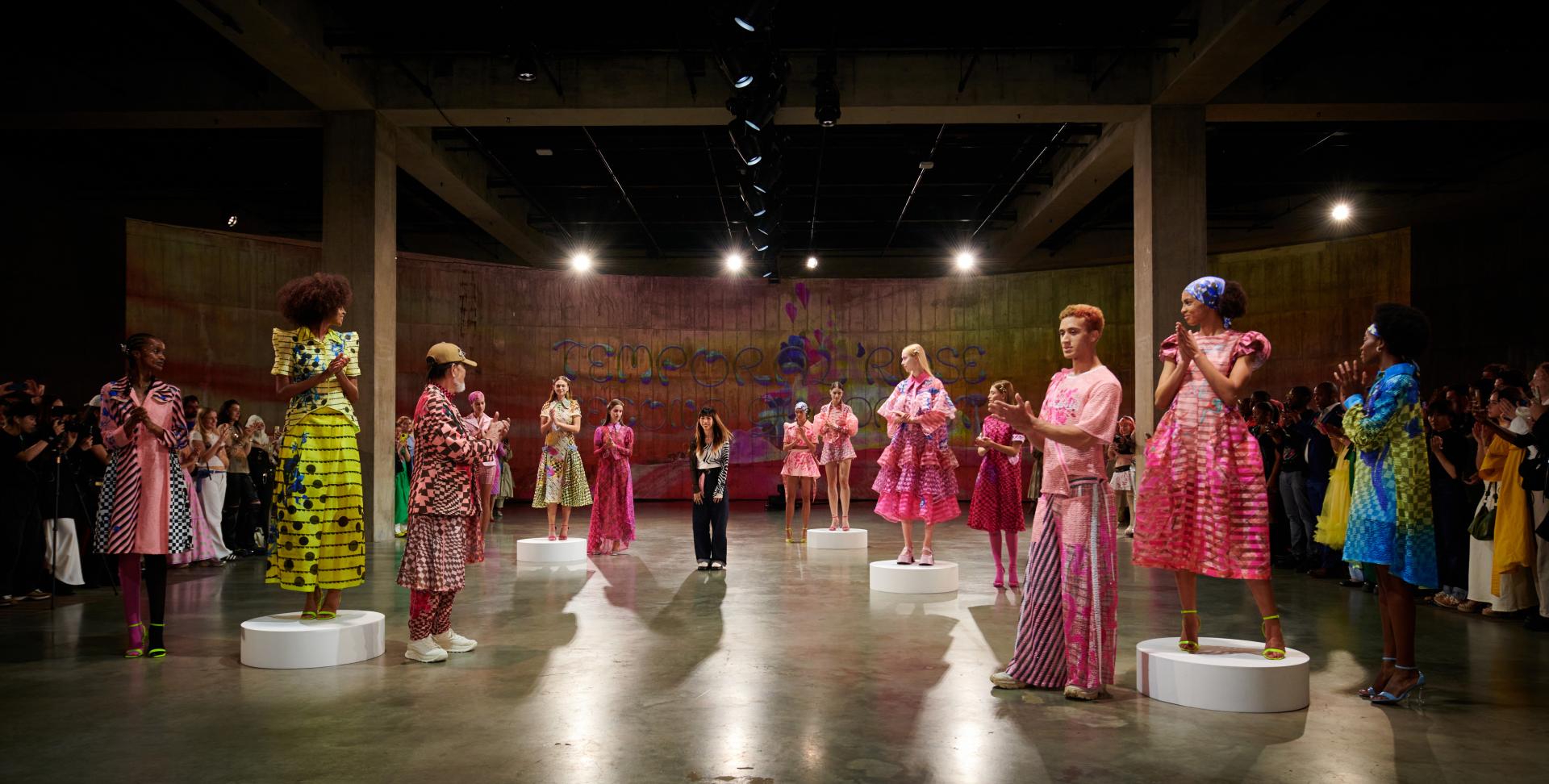2024 | Professional

Temporal Rose, Second Quadrant
Entrant Company
Claudia Wang
Category
Fashion Design - Runway Collections
Client's Name
Country / Region
Taiwan
In the fast-paced world of technological advancement, the concept of digital twins has emerged as the forefront of future development. This innovative fashion design seamlessly marries technology and art, offering a cutting-edge fusion of creativity and functionality. By seamlessly integrating state-of-the-art AI technology with the designer's unique aesthetic vision, the design not only transcends the traditional boundaries of apparel creation, but also introduces a myriad of new and diverse possibilities at the intersection of art and technology. The clothing draws inspiration from the themes of "rose" and "time", where the designer skillfully uses the garment's silhouette, color palette, and texture to evoke an array of temporal transformations. This allows the audience to visually experience the passage of time through the evolving design of the clothing, enabling them to embark on a multidimensional journey through the past, present, and future.
To capture the essence of "rose" and "time," the designer skillfully incorporated elements such as floral wave hemlines, hourglass silhouettes, bubble sleeves, and three-dimensional shoulder pads. The design palette showcases deep pink, bright yellow, and light pink tones, complemented by the use of dots and chevrons to symbolize the passage of time and create an melancholic atmosphere. The progression unfolds from the use of dark pink to represent the past and a sense of sorrow, to the yellow dresses featuring dots and checkered patterns, signifying the notion of time in retrograde, and finally, culminating in the light fabrics and light pink tones of the final dresses, offering a glimpse of a beautiful future.
The signature feature of this fashion design project is the innovative utilization of “digital twins”. Throughout the design process, technology played a pivotal role, starting with the use of AI software for inspiration in the early stages. Subsequently, the designers seamlessly reimagined clothing shapes and patterns, and then employed AI software for 3D simulation, pattern creation, and drawing, contributing to 90% of the overall design process. This approach not only enables prints to transcend their traditional boundaries and form a unified pattern, but also mitigates the substantial labor and fabric costs typically associated with traditional print.
Credits
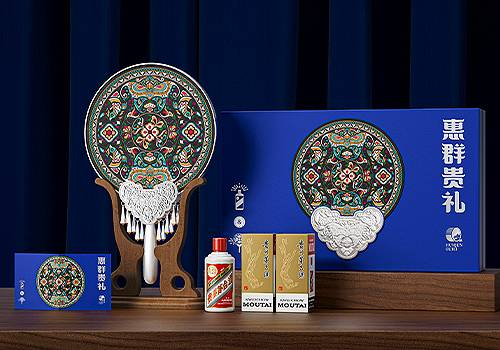
Entrant Company
Shenzhen Baixinglong Creative Packaging Co., Ltd.
Category
Packaging Design - Wine, Beer & Liquor


Entrant Company
MOT DESIGN STUDIO
Category
Interior Design - Showroom / Exhibit

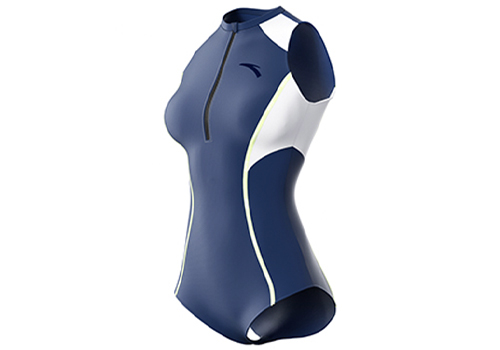
Entrant Company
ANTA SPORTS PRODUCTS LIMITED
Category
Fashion Design - Swimwear & Beachwear


Entrant Company
FLEXTAIL
Category
Product Design - Tools

